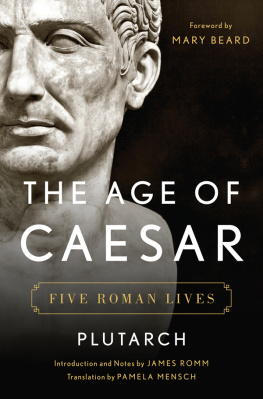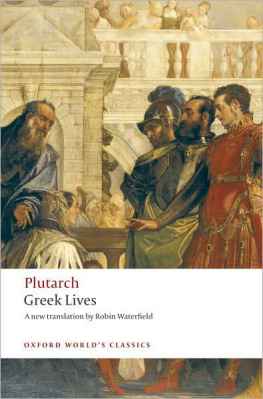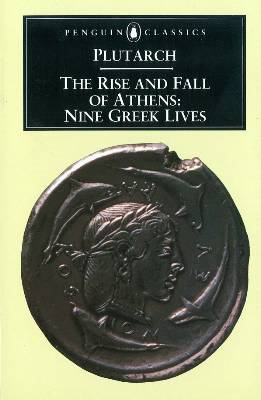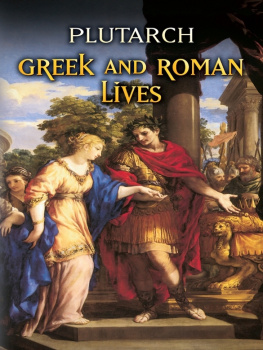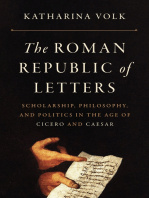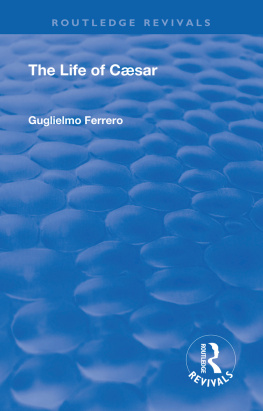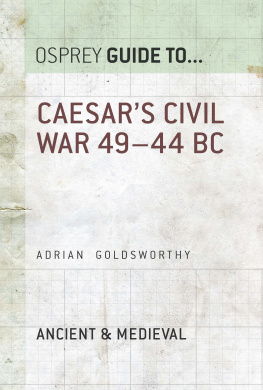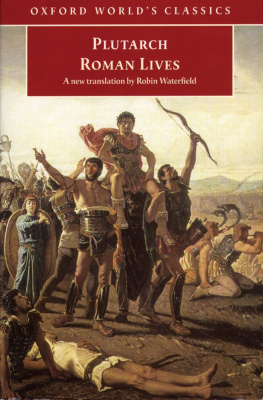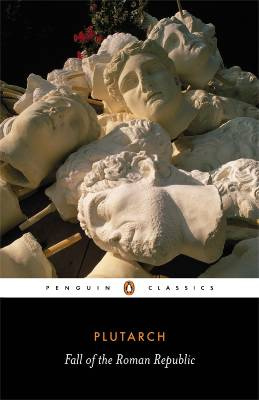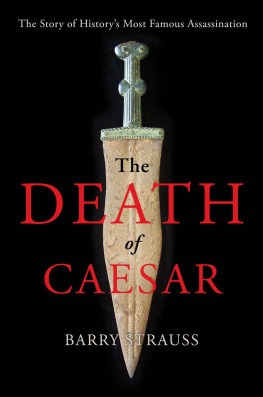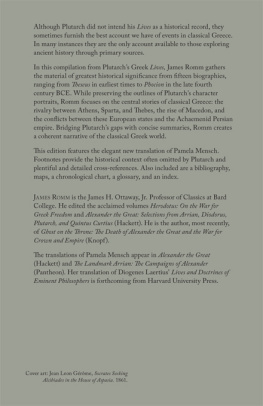
OTHER TRANSLATIONS BY PAMELA MENSCH
Histories: Herodotus
Lives That Made Greek History: Plutarch
The Landmark Arrian: The Campaigns of Alexander
Alexander the Great: Selections from Arrian, Diodorus, Plutarch, and Quintus Curtius
ALSO BY JAMES ROMM
Dying Every Day: Seneca at the Court of Nero
Ghost on the Throne: The Death of Alexander the Great and the War for Crown and Empire
Herodotus
The Edges of the Earth in Ancient Thought

Copyright 2017 by Pamela Mensch and James Romm
Introduction copyright 2017 by Mary Beard
All rights reserved
First Edition
For information about permission to reproduce selections from this book,
write to Permissions, W. W. Norton & Company, Inc.,
500 Fifth Avenue, New York, NY 10110
For information about special discounts for bulk purchases, please contact
W. W. Norton Special Sales at specialsales@wwnorton.com or 800-233-4830
Book design by Chris Welch
Production manager: Louise Mattarelliano
ISBN: 978-0-393-29282-4
ISBN: 978-0-393-29283-1 (e-book)
W. W. Norton & Company, Inc.
500 Fifth Avenue, New York, N.Y. 10110
www.wwnorton.com
W. W. Norton & Company Ltd.
15 Carlisle Street, London W1D 3BS
F OR OUR TEACHERS AT THE L ATIN -G REEK I NSTITUTE
CONTENTS
JAMES ROMM
B y 31 BCE, after serving as a battleground for Romes civil wars for more than a decade, the cities of mainland Greece were exhausted and starving. In rapid succession, the great generals and political leaders of the age, Pompey, Julius Caesar, Brutus, and Octavian, had despoiled the regions food stocks to feed Roman troops. Finally, in flight from Greece after his defeat at the battle of Actium, Mark Antony tried to extract one more shipment of grain from the citizens of Chaeronea, the smallish city-state in Boeotia, near the oracular site of Delphi. Greeks who lived there were whipped by Antonys soldiers as they carried loads of grain across nearly twenty miles of rough terrain, to the Gulf of Corinth, where the retreating ships of Antony and his lover, Queen Cleopatra of Egypt, were waiting.
Among those pressed into this ignominious service was one Nicarchus, the great-grandfather of Plutarch. They had made one trip of this kind, and when the second load had been measured out and they were about to put it on their shoulders, news came that Antony had been defeated, and this saved the city; for Antonys stewards and soldiers immediately fled, and the citizens divided the grain among themselves, Plutarch records in Antony , perhaps recalling what he himself had heard, as a child, at his great-grandfathers knee. The episode has little historical importance, but it is the one direct link Plutarch makes between his own experience and the events of the age of Caesarroughly speaking, the middle third of the first century BCE, the era that saw the rise to power of Julius Caesar, his murder on the Ides of March in 44 BCE, and the subsequent wars among those seeking to claim, or eradicate, his legacy.
The world was a quieter place by the time Plutarch was old enough to understand his great-grandfathers tales. Born around 45 CE, almost a century after Caesars assassination, Plutarch grew up in the Greek province of a Roman state that had resolved its internal quarrels and subdued nearly all its foes. His life in Chaeronea was untroubled by the depredations of Roman armies; the era of Nicarchus youth, in which much of the world had been caught up in the rivalries of towering generals, must have seemed far off. Yet it was that era, and the similarly turbulent era three centuries earlier that had seen the rise and fall of Alexander the Great, to which Plutarch gave the most attention in his Parallel Lives , the collection of historical biographies for which he is best known today. The age of Caesar furnished him with five of his longest and most compelling Lives , superb illustrations of the thesis that governs the collection as a whole: that characterthe endlessly varied contours of the human soulshapes not only destiny for the individual (as a famous Greek maxim maintained), but the history of nations as well.
As a well-off, intelligent youth, studying philosophy at Athens under a teacher named Ammonius, Plutarch had glimpses of the great imperial power that resided in far-off Rome. In the late 60s CE, when Plutarch was in his twenties, Emperor Nero, pursuing the delusion of a singing career, came sweeping through Greece on a concert tour, and the Greeks prostrated themselves before him (even posting an honorary inscription on the pediment of the Parthenon). In 68 and 69, after Nero died without an heir, the Greek world watched nervously as four rivals battled for succession, resulting in a victory for Vespasian, the founder of the Flavian dynasty.
This brief taste of civil war, after a full century of Julio-Claudian rule, served to remind the world governed by Rome of how much was at stake in the stability of its government. It was a lesson Plutarch kept firmly in mind when he later wrote about the far worse civil wars of the age of Caesar. Unlike others who wrote about those warsthe Roman poet Lucan, already dead by this time, had been a contemporaryPlutarch never questioned the legitimacy of the political system that they had produced, the autocracy today known as the Principate (because its rulers were euphemistically dubbed princeps , first citizen, rather than emperor).
Probably during his years in Athens, Plutarch became acquainted with Quintus Sosius Senecio, a high Roman official then governing Greece who later twice rose to the pinnacle of Roman politics, the consulship. The two men developed a warm bond based on pursuit of shared philosophic goals, and Plutarch ultimately addressed to Senecio his Parallel Lives , as well as two of his nonbiographical essays. Another powerful Roman, a senator named Lucius Mestrius Florus, later helped Plutarch obtain Roman citizenship, and Plutarch thereafter adopted the mans first and middle name as part of his own. Florus too would later become consul, a second among the nine Romans of consular rank whom Plutarch counted as personal friends. This collegiality with Roman men of affairs says much about Plutarchs breadth and temperament. Not covetous of power himself, he felt at ease with those who were; he no doubt shared with them many dinner parties of the kind he represents in his Table Talk , where learned conversation flowed freely in Greek (for Plutarch learned Latin only late in life).
At some point, probably when Plutarch was in his late twenties or early thirties, official business brought him to Rome, the first of several visits he would make over the next two decades. Greek intellectuals were highly sought after there as lecturers and moral preceptors, and Plutarchs talents soon gained him an audience. Important men, including Arulenus Rusticusanother future consullistened as Plutarch discoursed, in Greek, on ethical topics. At Rome at this time, the teachings of Stoicism, and to a lesser degree Epicureanism, provided the dominant ethical models for upper-class intellectuals in search of the good life. But Plutarch preferred the less earthbound system devised by Plato and revised by his followers over the course of five intervening centuries. Indeed several of his ethical writings take the form of dialogues, in imitation of the works of Plato, or mount defenses of the Platonic system or attacks on rival schools.
These philosophic dialogues and essays later got lumped together, during the Middle Ages, with Plutarchs various other nonbiographical worksrhetorical exercises, antiquarian miscellanies, and personal reflections on family life, education, and proprieties of thought and behaviorinto a vast collection called the Moralia . This anthology is just as voluminous as the Lives , and would be much larger if all of Plutarchs writings had survived; evidence suggests that he wrote many more works than the seventy-eight grouped today under the heading Moralia (a few of which are almost certainly the work of other, unknown authors). Its an uneven collection, encompassing lively works that still bear close reading along with others that today feel stale, stiff, or dated. But it has had enormous influence over time, providing a model for modern moral essayists, including Montaigne and Emerson.
Next page
